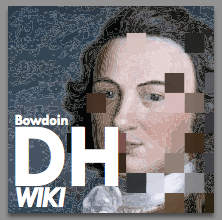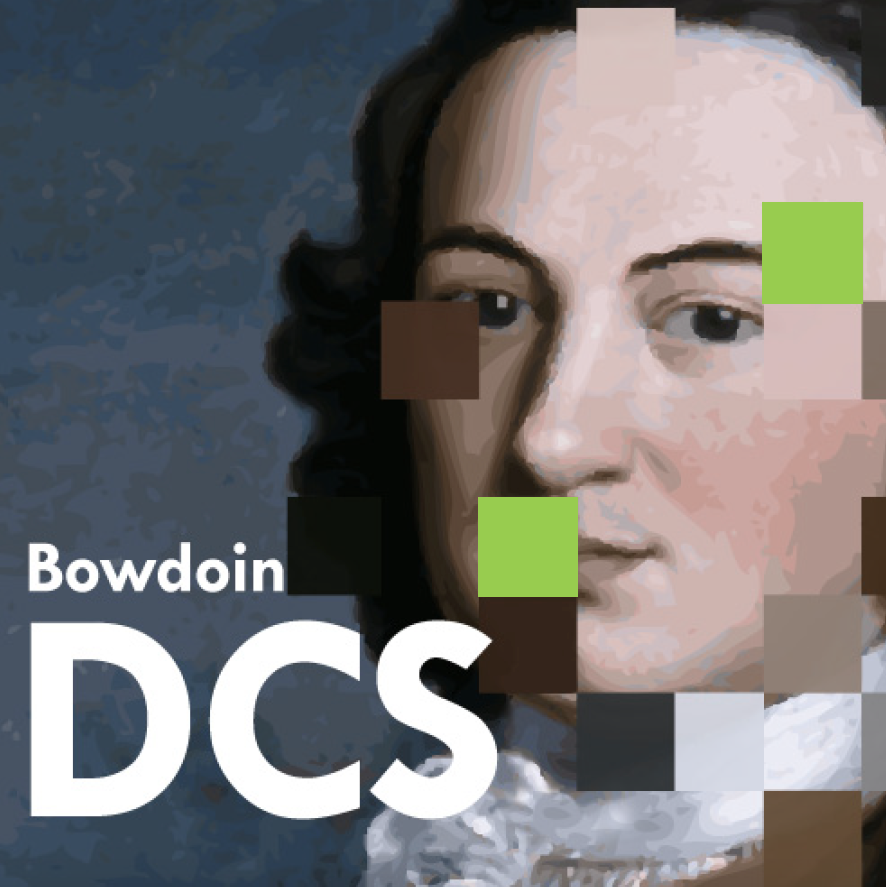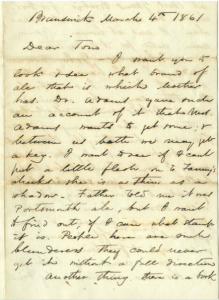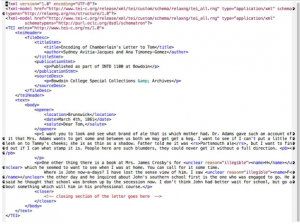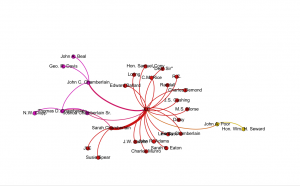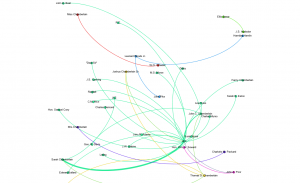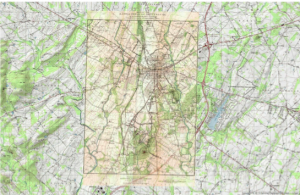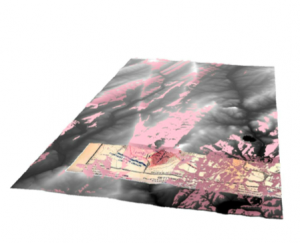Assembled by Crystal Hall, Associate Professor of Digital Humanities, Co-Director of DCS 2015- and Gabriella Papper ’18, DCS Teaching Assistant, Research Assistant, and course alumna
Digital and Computational Studies began in Fall 2012 after a meeting of the Bowdoin College Board of Trustees. Several faculty members from multiple disciplines joined a steering committee charged with this curricular initiative. Through a series of satellite meetings with colleagues from the humanities, social sciences, and physical sciences, they discussed the place of computation and digital disruption in a liberal arts environment. With the steering committee’s guidance, 2012-2013 marked the inaugural year of the “Computation and the Liberal Arts Colloquium,” which included events representing the fields of art history, biology, classics, computer science, mathematics and visual arts. In Spring 2013 co-directors Eric Chown and Pamela Fletcher announced the first DCS course: “Gateway to the Digital Humanities.” A student assistant for the course developed the first version of the DCS logo, which has undergone at least three iterations in the intervening years.
By Fall 2014 there were five courses on the books, including three that were part of the Digital Humanities Course Cluster, a Mellon Humanities Initiative. Thanks to tremendous faculty and student support, in 2014-2015 DCS was able to move beyond just the humanities to connect students across disciplines through computational thinking, data analysis, critical interrogation and design of digital resources, and the understanding of the ways that technological changes are impacting everyday life. Former Bowdoin College President Barry Mills ’72 summarized this change in one of his departing reflections on the College: “So, what’s different about Bowdoin’s approach? Unlike other colleges and universities, at Bowdoin we are incorporating this mode of inquiry throughout the disciplines.”
President Mills concluded that piece by saying: “This isn’t about being “relevant”; it is about educating our students to be informed, thoughtful citizens who can lead their communities—the age-old purpose of the liberal arts.” Incoming President Clayton Rose, asked many questions on this theme in his Opening of the College remarks at Convocation in Fall 2015: “What should a Bowdoin liberal arts curriculum be in five years, for the next 10-15? In particular, what will it mean to be “liberally educated” at Bowdoin in the future? What is great teaching? What is profound learning? What makes both possible? What roles should athletic, cultural, service, and other experiences play in complementing the intellectual engagement here? What role should technology play in both what we teach and how we teach?”
The faculty members and steering committee for DCS had been investigating these questions throughout the 2014-2015 academic year while developing a more expansive introductory course for this new field of study. DCS 1100 marked a new beginning for the program: an articulation of a core suite of tools and topics. Students worked with computation in Python, spatial analysis with ArcGIS, network analysis with Gephi, and structured markup of data with XML. Topics for readings and projects primarily addressed the theme of what it means to study an individual using digital resources. The course is oversubscribed for Fall 2016.
We invite you to explore the other courses and events that have been offered as part of DCS!
